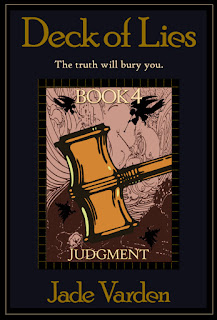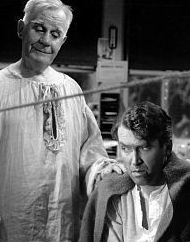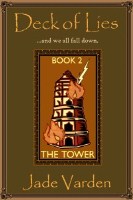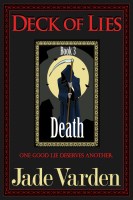If you've never thought about what it's like to be a single mother during the Great Depression, you've never read Mildred Pierce. It's a dramatic novel, stuffed with plot, completely revolving around one woman who's just trying to raise her two girls. There are two film versions of the story, both featuring very well-known actresses. But if you watch them both, you're going to think you're watching two totally different stories.
The Book
Mildred Pierce, written by James M. Cain in 1941, is set in the 1930s in southern California, and it opens in the respectable suburb of Glendale. This is where Mildred lives with her husband Bert and their two daughters. The youngest is Moire, or Ray, the eldest Veda.
Bert doesn't have a job. And to add insult to injury, he's cheating on Mildred. She knows it, and one afternoon summons up the gumption to kick him to the curb. It's in this fashion that Mildred finds herself practically penniless, with no husband and two daughters to support. For any woman, this is a pretty big problem. For a woman in the 1930s during the Great Depression...well, Mildred's really in for trouble now.
The book delves deeply into her life, and into the societal norms that make up the fabric of our existence. Bert was born into a higher social station than Mildred, a somewhat affluent family, and because of this she always feels a little outclassed by him. She certainly feels outclassed by Veda, who even at a young age exhibits a great deal of snobbery and disdain toward anyone who must work for a living. Bert is too fine for work, and Veda worships him for that.
Mildred secretly begins working as a waitress in a diner after coming to the realization that she really isn't skilled for anything else, and must earn an income. When Veda ultimately discovers what Mildred's doing for work, the mother parlays her restaurant experience into a business of her own. She opens up her own little place with the help of her husband's former business partner Wally, and even meets an intriguing new love interest in the form of Monte Beragon. He's a captivating and charming ne'er-do-well who, despite all his polish, is every bit as shiftless and lazy as Bert. Eventually Mildred catches on that Monte neither loves nor respects her, and she walks out of his life.
Ray dies tragically, and Mildred is secretly glad that Veda remains alive and healthy. Alive and healthy...and rather demanding. Mildred opens up two more restaurants so she may buy Veda clothes and music lessons, and everything else that Veda needs, even down to a fancy piano for their Glendale home.
It's never enough for Veda, who continues to despise Mildred for being a working woman. Veda fakes a pregnancy in order to blackmail a wealthy family, and it's too much for Mildred to bear. She screams at Veda to leave, and to her horror Veda actually does. Mildred spends months mourning her and attempting to make contact, but Veda shuns her at every turn.
Into this empty space, Monte re-appears. Mildred falls right back into a steamy love affair with him, and ends up purchasing his family estate. It's all really an attempt to bring Veda back into her life. In just a few months, Veda Pierce has gained quite a bit of local fame as an opera singer. It works out just as Mildred had hoped. She marries Monte, and Veda moves into the sprawling estate with the pair of them.
She's paying for everything again, but this time around Monte and Veda are even more expensive. Veda needs costumes and clothing and cosmetics for her performances, and Monte needs all his fine trappings and little luxuries to stay happy. Wally, still her partner in the restaurant game, notices that the profits of the business have sharply declined. He confronts Mildred, and threatens to take over the business.
Mildred goes to the one person who can help her in these dire circumstances: Bert, who has remained a big part of her life. She confesses that she's been taking company money to pay for Veda. Together, the two manage to work themselves into a frenzy of fear that Wally will somehow find a way to get at Veda's money. She does earn money for her performances -- but Mildred has still been paying for her just the same.
At Bert's insistence, Mildred goes to the estate to talk to Veda and find a way to protect her daughter's assets. Failing to find her daughter, she seeks out Monte to elicit his help in locating Veda. It's in this fashion that Mildred finds them both...unclothed, and in bed together.
While Monte rages in the background, Veda calmly gloats. She prances about, wearing nothing more than a self-satisfied grin, and Mildred snaps at last. She launches herself at Veda and begins to strangle her, not relenting until Monte finally rips her away. Veda dramatically stumbles away, coughing and choking, and demonstrably has lost her singing voice as a result of the attack.
Because of this, she loses her contract with the local opera house. Weeks pass as Mildred locates to Reno, where she must go in order to obtain a divorce from Monte. Bert joins her there. Mildred is forced to let go of her business, and remarries Bert once her divorce is final. They move together back into the Glendale home they once shared with two daughters.
Veda visits, and Mildred learns that she faked her apparent throat injury in order to get fired from her contract. She is now free to accept a more lucrative offer in New York, where Monte is already waiting for her. Bert puts his arm around Mildred, and the two agree to say to hell with Veda and get drunk together.
It's a deeply evocative tale, filled with titillating love scenes and intense emotions. Mildred is a hard heroine to like. She's tough to the bone, self-reliant and cool-headed. But she's a mess when it comes to her relationships. She's drawn toward men who are layabouts with little respect for her, and compelled to constantly attempt to win the love of Veda, who is incapable of loving anyone but herself. Mildred proves that she wants love and acceptance even more than financial security, no matter how hard-fought that particular battle, and ends up becoming dependent upon someone else because of it. But by the same token, Mildred does finally get the love and acceptance she so craved...even if it didn't come from the person she'd hoped would give it to her.
It's a great story on paper, but the film version of Mildred Pierce took several stunningly bizarre turns before it was finally turned out as a masterpiece.
The Film
The book was adapted for the big screen in 1945, with the gorgeous Joan Crawford in the title role. At this time, the infamous movie code was very much alive and well. Because of the code, most of the events occurring at the end of the book couldn't even be filmed. No way could filmmakers show the incestuous love affair between Veda and Monty, nor could they film Joan Crawford physically striking her onscreen daughter.
And because these things couldn't be a part of the film, the film had to have a completely different ending. Mildred Pierce instead became a strange film noir, a murder mystery in which Monte died by Veda's hand. In this version of the story, he had rejected her increasing sexual advances. In a fit of rage, Veda lashes out and kills him. Mildred is compelled to take the fall for her much-beloved daughter, but at the end eventually turns her over to the authorities.
It won Joan Crawford an Oscar, but it didn't win the hearts of too many book fans. This adaptation plays out like a wholly different story. Veda is much less monstrous and Mildred is much less weak. Some characters are dropped completely, and the timeline is compressed. It strikes a completely different tone and takes viewers to a far different place than the book.
That's why it was remade by HBO in 2011. This time around, Mildred Pierce became a dazzling, high-budget miniseries encompassing hours and hours of viewing pleasure. With Kate Winslet in the title role and Evan Rachel Wood (eventually) playing Veda, this adaptation becomes a slick and beautiful retelling of the original.
It's an incredibly faithful adaptation, which is why it's so very long. The book is a thick piece, and the miniseries certainly does it justice. Much of the dialogue is taken directly from the book, and the bulk of scenes on the page are recreated in whole onscreen. It's a very good (if quite long) adaptation, and one you shouldn't miss. Watch Joan Crawford and Kate Winslet both take a turn as Mildred Pierce, and see which version of the novel you like better.




























